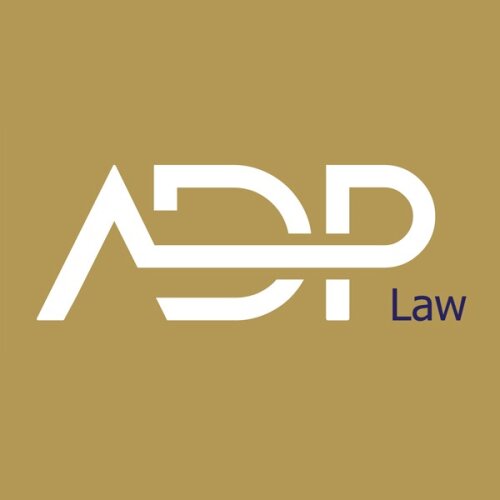Best Project Finance Lawyers in Saudi Arabia
Share your needs with us, get contacted by law firms.
Free. Takes 2 min.
Or refine your search by selecting a city:
List of the best lawyers in Saudi Arabia

About Project Finance Law in Saudi Arabia
Project finance refers to the financing of long-term infrastructure, industrial projects, and public services based on a non-recourse or limited recourse financial structure. In Saudi Arabia, project finance is a cornerstone for development in sectors such as energy, water, transportation, and real estate. This method of finance often involves complex arrangements between sponsors, lenders, contractors, and government entities, making a sound legal framework vital for success. With Saudi Arabia's ongoing Vision 2030 initiative and heavy investment in infrastructure, understanding the legal landscape of project finance has become increasingly important for both locals and foreign investors.
Why You May Need a Lawyer
Project finance transactions are generally complex due to the size of the projects, the variety of stakeholders involved, and the multiple legal and regulatory requirements. You may need a lawyer if you are:
- Negotiating or drafting project finance agreements
- Dealing with government authorities to obtain permits or approvals
- Assessing and managing regulatory risks or compliance issues
- Structuring deals involving local and international partners
- Handling disputes or defaults among participating parties
- Reviewing security packages like pledges or mortgages
- Interpreting the impact of Saudi or Shariah law on your project
- Navigating foreign investment regulations
Legal support is invaluable for safeguarding your interests, ensuring your project is structured correctly, and protecting you from unforeseen liabilities.
Local Laws Overview
Project finance in Saudi Arabia is shaped by a combination of Shariah law, Royal Decrees, and sector-specific regulations. Key legal aspects include:
- Foreign Investment Law - Foreign entities often require a license from the Saudi Arabian General Investment Authority (SAGIA), now part of the Ministry of Investment.
- Off-Take Agreements - Many projects, especially in utilities, rely on long-term contracts with government-backed entities (Power Purchase Agreements, Water Purchase Agreements).
- Security and Collateral - Security packages, such as mortgages or share pledges, must comply with local registration requirements and Shariah principles (forbidding interest).
- Public Private Partnerships (PPP) - These models have specific frameworks, including the Private Sector Participation Law and New Companies Law, encouraging private sector investment.
- Dispute Resolution - Arbitration is commonly used for resolving project finance disputes, often administered by the Saudi Center for Commercial Arbitration (SCCA).
Local legal counsel is critical to understanding these and other requirements to ensure compliance and secure project viability in the Kingdom.
Frequently Asked Questions
What is project finance and why is it popular in Saudi Arabia?
Project finance is a method of funding projects where lenders rely on the projected cash flows from the project, not just the sponsors' assets. In Saudi Arabia, it's widely used for large-scale infrastructure and energy projects due to the Kingdom's extensive development plans and public-private partnership models.
What legal structures are common for project finance in Saudi Arabia?
Special Purpose Vehicles (SPVs), usually limited liability companies, are often set up to isolate a project's assets and liabilities for lenders and investors.
Can foreign companies participate in project finance in Saudi Arabia?
Yes, foreign companies are welcome in many sectors but must obtain the necessary investment licenses from the Ministry of Investment and often partner with local entities.
How does Shariah law impact project finance?
Shariah law prohibits interest (riba), so Islamic finance structures such as Ijara or Murabaha are commonly used instead of conventional loans.
What types of projects are typically financed this way?
Power plants, water desalination facilities, infrastructure projects, real estate developments, and large industrial plants are frequently financed using project finance structures.
What kind of security interests can be taken in project finance deals?
Lenders may take security over project assets, shares in the project company, accounts, and receivables, but the creation and enforcement of security must comply with Saudi law and registration requirements.
Are government guarantees available for project finance deals?
For certain strategic projects, especially in utilities, government support through guarantees or credit enhancements may be available, subject to official approvals.
How are disputes typically resolved in project finance matters?
Disputes are often resolved by arbitration, sometimes held locally under the rules of the Saudi Center for Commercial Arbitration or internationally, depending on contract terms.
What is involved in a typical due diligence process?
Before closing, legal due diligence is conducted on licenses, permits, land rights, contracts, corporate structure, and compliance matters to identify potential risks or obstacles.
Do project finance agreements need to be in Arabic?
While parties can draft documents in any language, official filings and court submissions require an Arabic version, so translations or bilingual documents are common practice.
Additional Resources
Those seeking further information or assistance can approach the following resources:
- Ministry of Investment (MISA) - Handles foreign investment licensing and support
- Saudi Center for Commercial Arbitration (SCCA) - Arbitration and mediation services for resolving commercial disputes
- Saudi Arabian Monetary Authority (SAMA) - Regulatory oversight for conventional and Islamic finance transactions
- Public Investment Fund (PIF) - Key partner in many large national projects
- Saudi Electricity Company (SEC) and Saline Water Conversion Corporation (SWCC) - Public utilities involved in major project finance deals
- Qualified Saudi law firms and international firms with experience in project finance in the Kingdom
Next Steps
If you need legal assistance in project finance in Saudi Arabia, consider the following steps:
- Define your project scope and identify potential stakeholders
- Gather all relevant project documents, proposals, and existing agreements
- Consult with an experienced Saudi law firm or legal advisor specializing in project finance
- Check whether your project requires special licenses or approvals from local authorities and begin the application process early
- Review your potential risk areas, including disputes, regulatory compliance, and financing terms
- Engage in early discussion with financiers, local authorities, and government entities as needed
Project finance in Saudi Arabia requires careful legal planning and expert advice. Taking these steps will help protect your investment, ensure compliance, and increase the chances of successful project execution.
Lawzana helps you find the best lawyers and law firms in Saudi Arabia through a curated and pre-screened list of qualified legal professionals. Our platform offers rankings and detailed profiles of attorneys and law firms, allowing you to compare based on practice areas, including Project Finance, experience, and client feedback.
Each profile includes a description of the firm's areas of practice, client reviews, team members and partners, year of establishment, spoken languages, office locations, contact information, social media presence, and any published articles or resources. Most firms on our platform speak English and are experienced in both local and international legal matters.
Get a quote from top-rated law firms in Saudi Arabia — quickly, securely, and without unnecessary hassle.
Disclaimer:
The information provided on this page is for general informational purposes only and does not constitute legal advice. While we strive to ensure the accuracy and relevance of the content, legal information may change over time, and interpretations of the law can vary. You should always consult with a qualified legal professional for advice specific to your situation.
We disclaim all liability for actions taken or not taken based on the content of this page. If you believe any information is incorrect or outdated, please contact us, and we will review and update it where appropriate.
Browse project finance law firms by city in Saudi Arabia
Refine your search by selecting a city.














